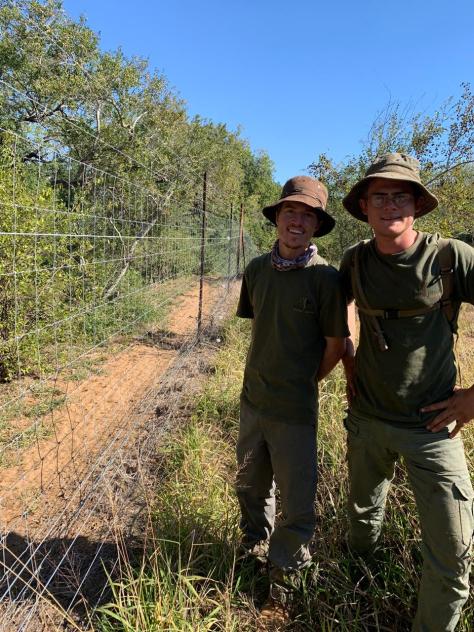The Bhejane Nature Training pride has grown with the new appointment of Phillip Wessels as Principal Trainer and Assessor.

Adding Skill and Experience to the Bhejane Team
Phillip brings with him a wealth of experience and qualifications. Having taught at, and headed up, numerous prestigious wildlife education institutions. He is particularly looking forward to working with the Bhejane students on our three-year Advanced Nature Guiding and Wildlife Conservation course. Bhejane is the only nature training school that offers this intensive course which ensures a well-rounded education for the student.
Phillip is well aware of the limitations with shorter courses, in getting the students industry-ready. He is keen to impart his knowledge to those students looking to make a life-long career in the guiding industry.
With origins in Zambia, Phillip’s lineage has strong links with wildlife. His almost weekly trips to Kruger National Park as a child served to strengthen his connection with the environment.
Phillip’s career in the wildlife industry was launched through a chance encounter with a field guide. More than 20 years later, he has achieved professional status in the industry through the Field Guide’s Association of Southern Africa (FGASA). He is a registered Professional Field Guide, with Specialised Knowledge & Skills (SKS) accreditation in dangerous game and birding, Professional Tracker qualification and proficiency as a Firearms Trainer.
He is also proficient in Wilderness First Aid, well versed in Hospitality and Big 5 Walking Safaris, and intimately involved in Anti-Poaching Conservation.
As a FGASA Specialist Training Provider, assessor and trails guide mentor qualified to conduct training, Phillip has a burning desire to share this passion and knowledge with learners.
“I am enthusiastic about sharing my vast knowledge with this new generation of nature ambassadors who stand to gain an in-depth understanding of the environment and a passion for guiding,” says Phillip.
About the Bhejane Nature Training Course
The Advanced Nature Guiding and Wildlife Conservation course includes FGASA Apprentice Field Guide, Apprentice Trails Guide, Marine Guiding, Track & Sign and Trailing, Advanced Rifle Handling FGASA Birding and several other specialist courses.

Bhejane tailor made the course specifically because of the demanding nature of the wildlife guiding industry. The course meets the highest standards possible when it comes to training field guides.
Ideal for school leavers, by the time the student has graduated from the three-year course, they will be 21 years old . This is thee required age to obtain a professional driver’s permit (PDP), which is a necessity for working in the industry.
This opens the student to employment immediately after graduating.
“Over the last 10 to 15 years, we have seen the majority of students who have completed this advanced course remain in the industry and advancing to senior positions.
“Our guides who graduate from the advanced course really stick out above the rest,” said Dylan Panos, Bhejane Nature Training co-founder.
For full info on the course, visit https://www.bhejanenaturetraining.com/nature-guiding-wildlife-conservation-course.php





































You must be logged in to post a comment.